For soccer player Sangeetha Sekar, taking part in the Homeless World Cup in Scotland (2016) meant swapping her old and worn-out clothes with a brand new shining blue jersey. Swanky sneakers took the place of broken slippers and, for the first time in a very long time, she didn’t have to choose between drinking milk and eating eggs.
By the time she was 16 and selected to play in the world cup, Sangeetha had already grown accustomed to a horrific existence and learnt how to tackle the dangers of living on the streets, including violence, diseases and malnutrition. And yet, she was terrified of travelling to another continent without her mother. Or maybe it was the fact that she would see a contrasting reality that would remind her of her destitute life.
However, the worry and fear did not reflect on her face even once throughout the tournament. On the contrary, she displayed an exemplary performance as the captain of the Indian team. Her endurance and speed during the 90-minute matches were widely discussed in the tournament. Seeing the ease with which Sangeetha scored goals against her opponents, no one would believe that this teenager lived and grew up on the streets of Chennai.
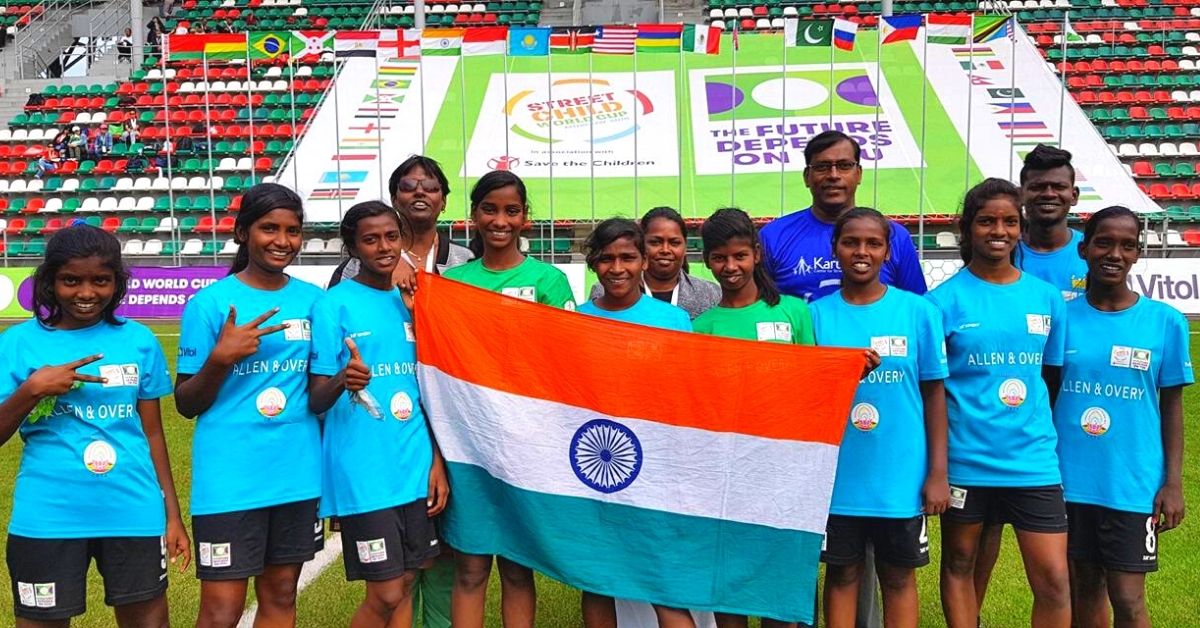
Two years later in 2018, she made her mark once again, at the Street Child World Cup in Russia, a tournament that takes place ahead of the FIFA World Cup every four years. Her performance caught the nation’s attention and journalists lined up on the Wall Tax Road in Georgetown, where she lived, eager to know her story.
“Playing in the park, going to school or affording a four-square meal were pleasures that didn’t exist in my life,” Sangeetha, now 20, tells The Better India. “When I finally got a chance to make my own identity and excel at a sport, no one around me, including myself, believed I could do it. But I made it.”
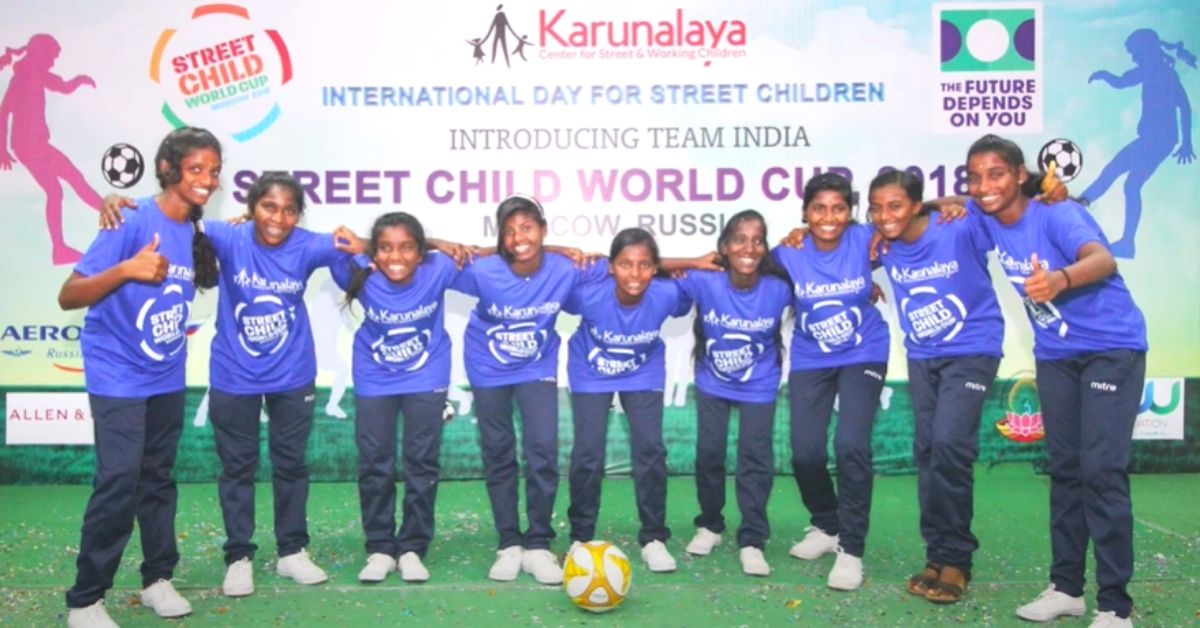
Sangeetha talks about what inspired her in her journey, and how she tackled social stereotypes and made India proud.
Amid a life of struggle
Sangeetha’s makeshift home lies amid the bustling streets of Chennai, with honking cars, scores of people walking on the footpath, and in the sweltering heat of the city. She grew up surrounded by the stench of garbage, frail-looking children begging for food, and municipal workers harassing the dwellers to clear the pavement.
She was hardly three or four years old when her alcoholic father left their five-member family to fend for themselves. Her mother and elder sister took up odd jobs including wage labouring, and mopping people’s houses so Sangeetha and her siblings could go to school.
Living on the pavement with a few plastic sheets that maintained their privacy was anything but easy, especially because of her gender. “Girls are often subjected to eve-teasing, men passing lewd comments and harassment by the mighty because they know no one will protect us. Necessities like taking a bath or using a washroom is still a luxury for us,” Sangeetha says.
She was forced to drop out of school in Class IX due to severe poverty, and joined a utensil manufacturing firm across the street. Her job, which paid minimum wage, was to melt old utensils and polish new ones. However, she soon quit, and this ultimately proved to be a blessing in disguise. Around the same time, Karunalaya NGO, a child rights organisation, decided to help Sangeetha. She was enrolled back in school and NGO members would teach her after school.
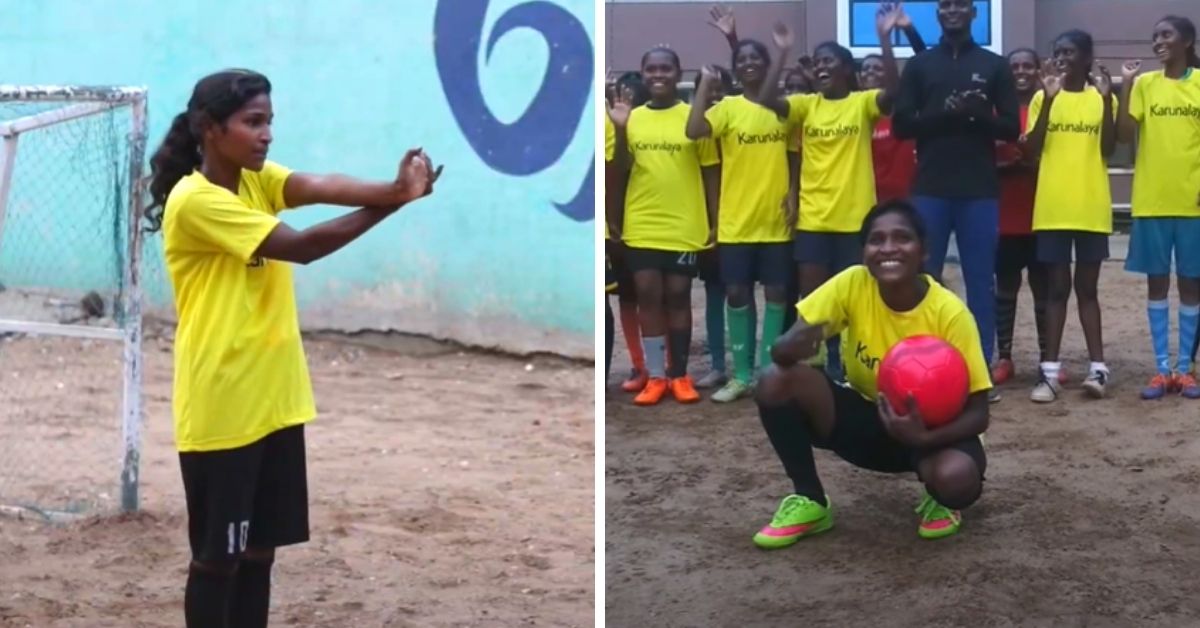
Even amid battling poverty, managing her studies, and working as a child labourer, Sangeetha’s passion for football was silently brewing. Watching matches on the pavement’s common TV was initially an escape from her struggles, but as she observed and began to understand the game, she found herself liking it even more.
She expressed her desire to play football to the NGO, who connected her with a coach training school students. This was the turning point in Sangeetha’s life, she says.
‘Soccer Sangeetha’
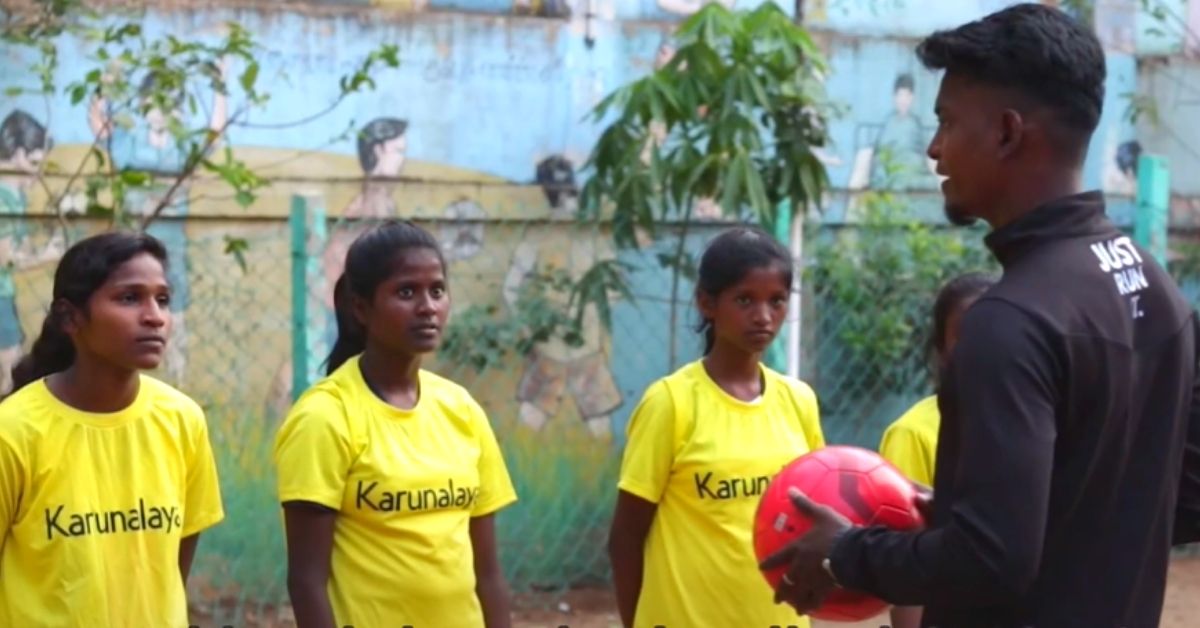
For most homeless children, dreaming of establishing a career or pursuing higher education is a distant reality. As soon as they turn 18, they take up menial jobs to make ends meet and feed their families. Some can’t afford to wait to reach the legal age.
Sangeetha’s life graph was also heading in the same direction, but her zeal to break this cycle and her natural talent saved her. Learning the sport was not as challenging as listening to taunts from her family and neighbours. They shamed her for wearing shorts and wasting time learning a frivolous sport that didn’t guarantee a stable income. After the NGO’s intervention, her mother, Selvi eventually gave in and allowed her to play.
“When she started playing, she had to wear shorts and pants. I was against the idea and was even criticised by many for allowing her to do so. But I realised that this is what she wanted to do, and when she started winning medals, I supported her. Others soon realised how well she was doing too. Now, we are all super proud of her,” Selvi told The News Minute.
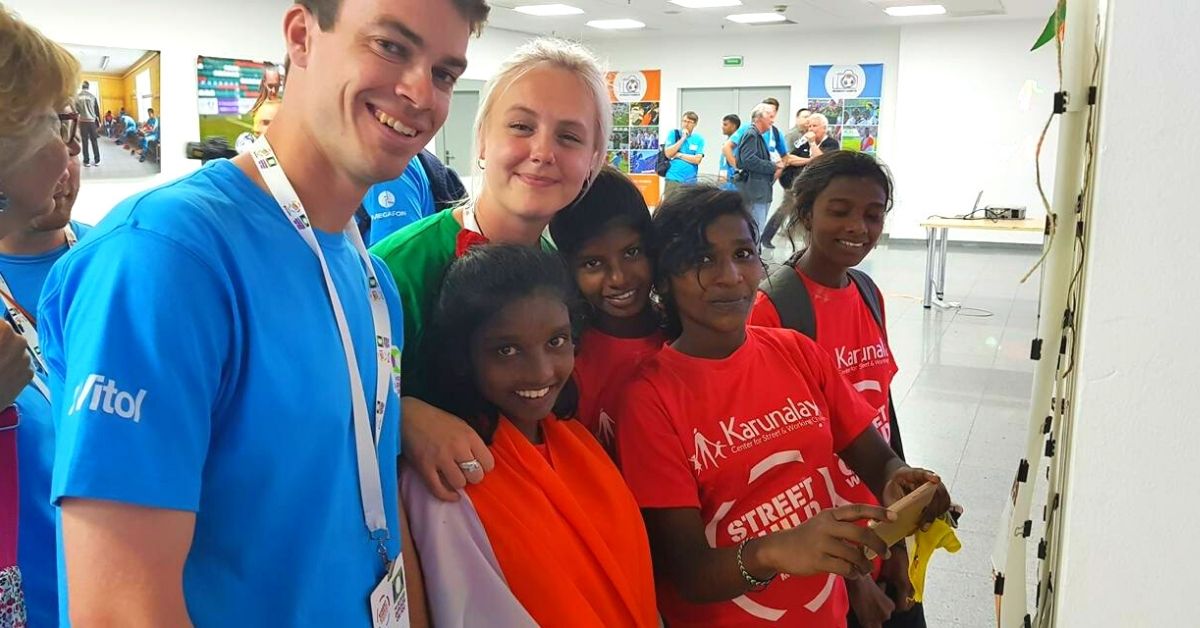
Sangeetha swiftly developed a calibre for the sport due to rigorous practices and focus. She would practice before and during school hours, and at night under the street lights. A month later, she played her first local tournament ‘Slum Soccer Games’ and impressed everyone with her performance. This was followed by another win by Karunalaya’s girls’ team. She bagged her life’s first Best Player Award, which boosted her confidence and morale. The laurels also got her local recognition and people fondly started calling her ‘Soccer Sangeetha’.
With her coach’s help, she was selected to play her first-ever international match. Sangeetha was the only girl selected from Tamil Nadu. There has been no looking back since.
“I am grateful to the NGO, as they made it possible for a girl like me to be able to afford dreams and also fulfil them. Seeing my mother and sister struggle daily to feed us was painful, so I worked hard and decided to professionally pursue football,” says Sangeetha.
Sangeetha’s remarkable story was made into a seven-minute short award-winning film ‘Made in Madras’ in 2019 by Shikha Kumari, Mohit Arora and Aishwarya Ashok. The movie was screened at various festivals including the Chicago Reels Fest, and was declared the 2019 MY HERO People’s Choice winner.
“We were moved by Sangeetha’s story, including the fact that she dropped out of school and worked as a child labourer to sustain her family. She is a very strong person who doesn’t let her guard down easily, and yet, she is empathetic. Despite the adversities, her positive attitude and hunger for excellence will take her ahead in life,” says Mohit.
Today, Sangeetha’s life has not changed much. She still lives on the pavement and her mother is a daily wager. What has changed is the definitive career path that she has already embarked on. She is currently pursuing a B.Sc in Physical Education at Queen Mary’s College. She hopes to become an IAS officer so that she can use her position and uplift the lives of homeless children. She also wants to start a football academy to train children living in slums and on the streets for free.
“I want to use football to change lives. It has changed mine, now it’s time I return the favour,” Sangeetha adds.
Watch Made in Madras here:
Feature image source
To support Sangeetha financially, you can donate directly to her account. Details here:
District: Chennai
Branch: SOWCARPET
Branch Code: 00S034
Name: S Sangeetha
Account Number: 6173587177
IFSC Code: IDIB000S034
Edited by Divya Sethu
No comments:
Post a Comment